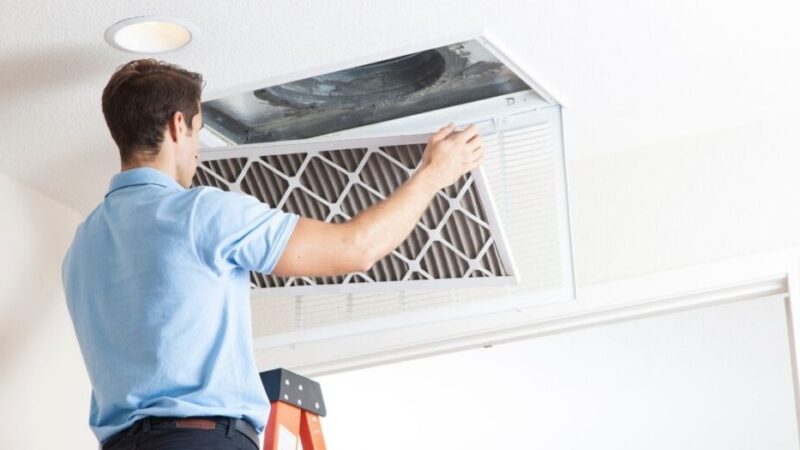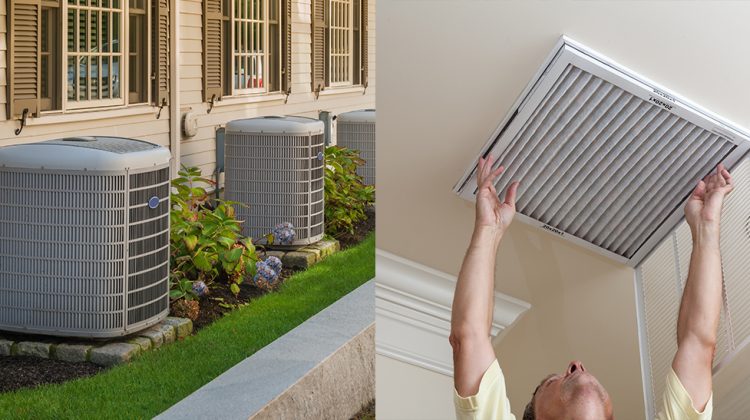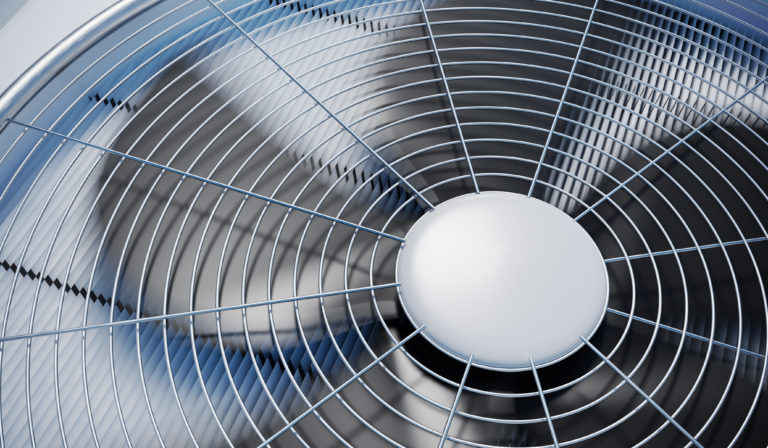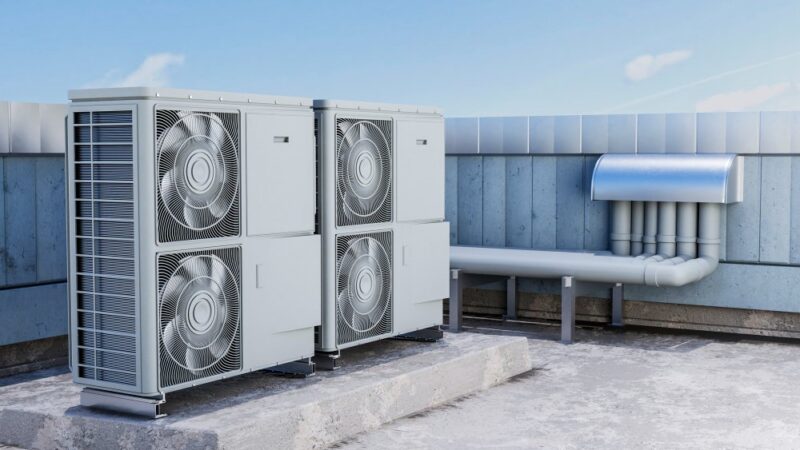Air Conditioner Smells Musty? Here’s How to Fix It

Dealing with a musty odor from your air conditioner? Discover how to identify and tackle the cause of that unpleasant smell to bring fresh, clean air back into your home.
Have you ever walked into your home after a long day and noticed a musty smell coming from your air conditioner? It’s frustrating, and it does more than just put you in a bad mood—it makes your living space feel uninviting. Thankfully, getting rid of this odor isn’t difficult.
With a few simple steps, you can restore the freshness of your indoor air. The musty smell can come from several sources, like mold, excess moisture, dirty filters, or leaks in the ductwork. Regardless of the cause, there are ways to resolve it so you can enjoy cool, clean air again.
This article will break down the reasons behind that air Conditioner Smells musty and offer practical solutions. From changing filters to addressing duct issues, you’ll find helpful tips to freshen up your home.
And if the problem persists, I’ll guide you on when it’s time to call in professional help. If you’re unsure how to eliminate the musty odor, this guide is for you. Let’s take the first step toward refreshing the air in your home.
How Your Air Conditioning System Really Works
The way your air conditioner operates can sometimes lead to unpleasant smells. Contrary to popular belief, your AC doesn’t create cold air.
Instead, it removes heat from your home and releases it outside, leaving your indoor space cool and comfortable. Let’s dive into how this process works and explore the key components that make it happen.
Key Components of an Air Conditioning System
An air conditioning system relies on several important parts to cool the air and maintain a comfortable temperature in your home. Here are the main components:
- Evaporator Coil: Absorbs heat from the indoor air.
- Refrigerant: A specialized substance that transfers heat within the AC system.
- Condenser: Located outside, it releases the heat absorbed from your home.
- Compressor: Circulates the refrigerant, moving heat between the evaporator and condenser.
- Air Circulation: Distributes the cooled air throughout your home, ensuring a pleasant environment.
The Cooling Process Explained
Your air conditioner pulls warm indoor air across the evaporator coil, where the refrigerant absorbs the heat, cooling the air. This cooled air is then circulated throughout your home. Meanwhile, the refrigerant carries the heat outside and releases it. This cycle continues until your home reaches the desired temperature.
However, if parts of your AC, like the evaporator coil, become dirty, the air can carry unpleasant odors. Dust or mold on the coil can create a bad smell, which is far from ideal. To prevent this, regular cleaning and maintenance of your AC system are essential.
Identifying and Tackling Musty Air Conditioner Smells: Symptoms and how to fix it
When your air Conditioner Smells musty, it’s important to address it quickly to keep your home feeling fresh and comfortable. Recognizing the signs and trying some simple solutions can help resolve the issue before it gets worse.
Clogged Filters
A common source of musty smells in air conditioners is a clogged or dirty filter. Dust, dirt, and debris can build up over time, restricting airflow and creating unpleasant odors. Here’s how to tackle this problem:
- Routine Maintenance: Regularly check and replace your air conditioner filters as recommended by the manufacturer, typically every 1 to 3 months.
- Upgrade Your Filters: Consider switching to a high-efficiency particulate air (HEPA) filter, which captures smaller particles and can help minimize musty odors.
Moisture Buildup
Excess moisture can foster mold and mildew growth, resulting in musty odors. This issue often arises when the air conditioner’s condensate drain line is blocked or if there’s insufficient insulation around the unit. To combat moisture buildup:
- Drain Line Care: Inspect and clean the condensate drain line frequently. You can use a mixture of warm water and vinegar to clear any obstructions.
- Ensure Proper Insulation: Make sure your air conditioner is properly insulated and sealed to prevent condensation and moisture accumulation.
Mold and Mildew Growth
Mold and mildew flourish in damp, dark spaces, making air conditioners a prime environment for their growth. If not addressed, they can spread throughout your HVAC system, resulting in musty smells and potential health hazards. Here’s how to eliminate mold and mildew:
- Thorough Cleaning: Clean the evaporator coils, blower motor, and other parts of your air conditioner using a solution of warm water and mild detergent. For tougher mold, a mixture of one part bleach to four parts water can be effective.
- Install UV Lights: Consider adding a UV light system to your HVAC unit to help prevent the growth of mold and mildew.
Dirty Air Ducts
Over time, air ducts can gather dust, dirt, and debris, which can produce musty odors when the air conditioner is in operation. To address dirty air ducts:
- Regular Inspections and Cleaning: Check your air ducts regularly and clean them as needed, either by yourself or by hiring a professional cleaning service.
- Repair Ductwork: Replace or fix any damaged ducts to prevent debris buildup and the resulting odors.
Malfunctioning Components
If your air conditioner isn’t working well and smells musty, there could be problems like a broken fan motor, a leaking refrigerant line, or a cracked condensate pan. To fix these:
- Regularly check your air conditioner for damage and fix or replace broken parts.
- Get a professional to do regular maintenance to keep it running well and avoid issues.
DIY Fixes
Before calling in a professional, try these easy fixes to eliminate musty odors:
- Replace the air filter: A dirty filter can cause musty air. Changing it regularly can help keep your air fresh.
- Ensure proper airflow: Check that vents aren’t blocked by furniture or other obstacles, and clear any obstructions.
- Seal leaky ducts: Leaky ducts can lead to musty smells. Find and seal any leaks to prevent air leakage and odors.
- Perform seasonal maintenance: Before summer hits, clean the evaporator coil, drain pan, and condensate line to prevent musty smells caused by buildup.
These DIY steps can often resolve musty air conditioner smells, but if they don’t, or if you’re unsure, it’s best to contact a professional. They can assess the situation and provide a more thorough fix.
Conclusion
If your air Conditioner Smells musty, it can be unsettling and unpleasant. It’s important to address the issue promptly to maintain fresh air in your home. Start by checking the AC filter and inspecting the ducts for any leaks. While these steps may help, it’s essential to identify the root cause of the odor.
In some cases, calling a professional might be necessary. An experienced technician can thoroughly inspect your system, pinpoint the source of the smell, and provide the right solution. Getting expert assistance not only resolves the issue but also helps prevent future problems and improves the efficiency of your AC.
After resolving the problem, regular maintenance is key to keeping your AC in good condition. Routine check-ups, including cleaning the evaporator coil and frequently replacing the air filters, will ensure your system stays clean and functions properly, providing fresh air for a comfortable and healthy home.
Addressing a musty air conditioner promptly enhances your living environment. Whether through simple fixes or professional help, tackling the issue will ensure your AC runs smoothly and keeps the air in your home fresh and clean.
Recommendation
How Much Electricity Does an Air Purifier Use?
Air Purifier Vs Humidifier: Which One Do You Need?
Your Dehumidifier Keeps Icing Up, Why and How to Fix It?
Some FAQs
Q: How do you get the musty smell out of your air conditioner?
A: If your air conditioner has a musty odor, try these simple solutions before reaching out to a professional. Replace the AC filter: A clogged filter can cause unpleasant smells. Changing it regularly can help keep the air fresh. Make sure airflow isn’t blocked: Ensure that nothing is obstructing the air circulation. Clear any items that might be in the way.
Q: Why does my AC smell so bad when I turn it on?
A: A dirty air filter is one of the main reasons an air conditioner might smell bad. Over time, dust, dirt, and other particles build up on the filter, creating a musty odor when the AC is running.
Q: What mode on AC gets rid of smell?
A: Yes, it can help. The ideal way is to open the windows slightly more than normal, then set the air conditioner to “ventilation” mode on a higher fan speed for around 15 minutes.
Q: Is bad AC smell harmful?
A: Yes, it can be. A musty smell from the AC often means there’s mold inside, which can lower air quality and spread to other parts of your home. Breathing in air with mold spores can lead to health problems or make allergies worse.






